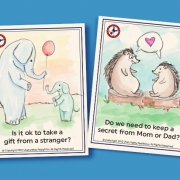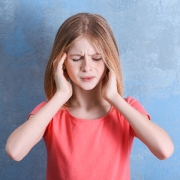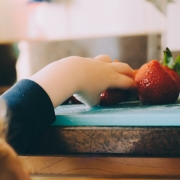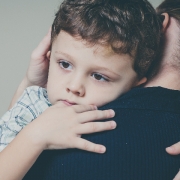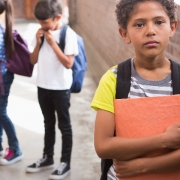10 Safety Rules for Kindergarteners
May 30, 2017
- It is impossible to be at your child's side at every moment.
- Instilling in children the means to keep themselves safe is a critical responsibility.
- You'll rest easier in the knowledge that your child knows what to do when dangerous situations arise.
Your Asthma Action Plan
May 18, 2017
- Between ten and fifteen percent of grade school children are affected by asthma.
- Exercise is a vital component of wellness, even for kids with asthma.
- Work with your pediatrician to create an asthma flare-up action plan and share it with your child's school administrators.
Adults aren’t the only ones who get headaches
April 27, 2017
- It is perfectly normal for children — even babies — to get headaches.
- Headaches are frequently caused by stress, hunger, lack of sleep, environmental triggers, mild head trauma, physical exertion, a food reaction, or a viral illness.
- Tension headaches and migraines are the most common types of recurrent headaches.
Dirty Tricks for Clean Eating
April 17, 2017
Article at a Glance
- Be and creative in how you introduce new flavors, using purees and other tricks.
- Keep an open mind and allow kids some autonomy to choose and adapt to new foods over time.
- Make subtle changes to keep family favorites, but with less sugar and more fun.
Do this one thing for a smarter child
April 3, 2017
- Reading from infancy offers benefits that toys and games do not.
- Parents should read aloud to their children every day.
- Choose books that are age appropriate, we provide a list to help you get started.
Helping teens treat and prevent acne
March 24, 2017
- Acne is most common among teens because of their fluctuating hormone levels.
- Minimize breakouts by avoiding certain products and behaviors, like touching your face.
- To avoid scarring, don't pick at or pop blemishes.
How much emphasis should I put on grades?
March 20, 2017
- Grades are not a perfect measure of intelligence or effort.
- A reward system with frequent, positive reinforcement is more effective than a cash reward at the end of the term.
- Keep your child’s learning style, special needs, and schedule in mind when you decide how to handle poor grades.
Social Media Bootcamp
March 7, 2017
- For most social media accounts, children should be 13 or older and be mature enough to make good choices online.
- Commit to being proactive about your child’s use of social media.
- Talk to your children about what is appropriate on social media and how to stay safe.
Helping your child deal with death, loss, and grief
February 27, 2017
- How your children grieve depends on their developmental stage and will change as they mature.
- Don’t avoid conversations about death, but answer your children’s questions simply and honestly.
- Allow your children to express their emotions and help them feel safe.
My child has no friends. What can I do?
February 6, 2017
- Assess whether your child is shy, introverted, or possibly has learning/attention challenges.
- Give your child opportunities to make new friends in practical ways.
- Provide emotional support and teach problem-solving skills.
Article Types
Archives
Sign up to our Newsletter
